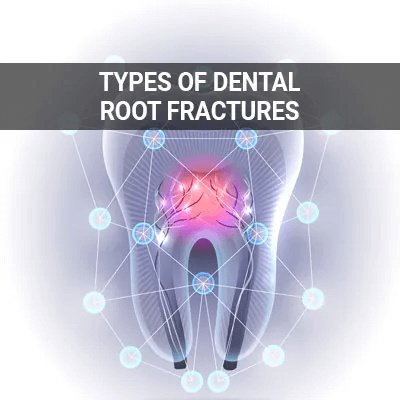The Truth Behind Root Canals
 Root canal treatment can preserve an infected tooth. Left untreated, tooth infections can spread to other parts of the body. Root canal treatment is a standard procedure that saves millions of teeth each year.
Root canal treatment can preserve an infected tooth. Left untreated, tooth infections can spread to other parts of the body. Root canal treatment is a standard procedure that saves millions of teeth each year.
Root canals are available at Smile Fresh Dental in Auburn Hills and the surrounding area. Saving your tooth can be easier than you think. Call us today at (248)-255-4585 to schedule an appointment and learn more.
A root canal cleans the pulp chamber and canals of a tooth infected due to decay or injury. The tooth's damaged and infected inner tissue is removed during a root canal procedure. The inside of the tooth is then cleaned and disinfected before the tooth is sealed with a protective material called gutta-percha. Once in place, this filling material protects the tooth from future damage and restores it to its full function. At Smile Fresh Dental Grand Blanc, the dentist may place a crown over the tooth to protect it from further damage.
Symptoms Of Root Canal
- Severe toothaches
- Dark or discolored teeth
- Pain when you chew food
- Sensitivity to hot or cold foods and drinks
- Swelling around gums
- Inability to bite down
- Fever
- Headaches
- Neck pain
The Advantages Of A Root Canal
While many people dread getting a root canal, the advantages far outweigh the minor discomforts one might experience during the procedure. A patient’s tooth will be restored to a healthy state after completing the process. You might also have an improved appearance if your damaged or discolored tooth is restored to its original color. Plus, you won’t have to worry about tooth pain that results from an infected tooth. Your mouth will function normally once the infection is gone.
The Procedure For Root Canal
A root canal is performed using local anesthetic and sedation, so you will not feel discomfort during the procedure. An opening is made into the tooth, and the pulp is removed. The inside of the tooth will be cleaned and disinfected, and then the opening is closed with a dental crown or filling. The entire procedure is typically completed in one visit. You may also need additional appointments for a follow-up exam and cleaning. Before you leave, your dentist will provide instructions for caring for your tooth at home.
If you have an infection, a root canal will resolve it by removing the diseased tissue from the tooth's inner chamber. After the procedure, you will still need to practice good oral hygiene by brushing your teeth twice daily and flossing daily. You should also attend your scheduled dental exams and cleanings every six months. You may develop more cavities or need future root canal treatment if you do not maintain good oral health.
When Root Canals Are Necessary
Root canal treatments are one of the most common types of endodontic treatment. They become necessary when the inner tissue of the tooth’s root canal (or pulp) becomes infected or inflamed. This may happen for several reasons: cracks or chips in the teeth, deep decay, or repeated dental procedures. The pulp may also sometimes be infected or inflamed without any signs of external damage.
There are some other telltale signs that someone may need a root canal. As endodontists are experts in addressing tooth pain, patients should seek medical attention immediately if they begin experiencing severe pain while biting or chewing. Many patients who need root canals also develop pimples on the gums, temperature sensitivity, swollen or tender gums, or darkened gums.
"As endodontists are experts in addressing tooth pain, patients should seek medical attention immediately if they begin experiencing severe pain while biting or chewing."
Root Canals & Safety
Root canal treatments save millions of teeth each year. The American Association of Endodontists (AAE) estimates that over 15 million of these procedures are performed in the United States every year. On average, this comes out to over 41,000 root canal treatments per day.
This common procedure is both safe and effective, leading to predictable results. In fact, it is usually more dangerous to leave a tooth untreated than it is to undergo a root canal treatment. Root canal treatments are only necessary once bacteria have begun to multiply inside the tooth, causing an infection or abscess. This may lead to bone loss around the tip of the tooth’s root; drainage problems extending from the root; and swelling in other areas of the face, head, or neck. Root canal treatments can stop these effects.
"The American Association of Endodontists (AAE) estimates that over 15 million of these procedures are performed in the United States every year."
Common Myths About Root Canals
Unfortunately, there are many common myths about root canals that stop patients from seeing the endodontist. The main three misconceptions are:
- It is painful to get a root canal.
- Getting a root canal will cause illness.
- Tooth extraction is better than root canal treatment.
While root canal treatment may have been painful in the past, modern technology and anesthetics have made the experience no more discomforting than getting a cavity filled. Root canal treatments also reverse toothaches by removing the source of infection or inflammation. Plus, endodontists are experts in pain management.
Furthermore, the claim that links root canal treatment to illness is based on an outdated and poorly designed research study that has long since been debunked. While some may claim that root canal treatment may make patients more likely to become ill or contract certain diseases in the future, there is no valid, scientific evidence supporting this theory.
Finally, it is always best to save a natural tooth whenever possible. In most cases, this is safer, less painful, and more economical than a tooth extraction. Preserving a natural tooth lessens the risk of further infections, and, as mentioned, root canal treatments are typically not as painful as people believe. Many people also mistakenly believe that tooth extraction is the cheaper option. However, this is often untrue when considering the whole picture.
"While root canal treatment may have been painful in the past, modern technology and anesthetics have made the experience no more discomforting than getting a cavity filled."
Check out what others are saying about our dental services on Yelp: The Truth Behind Root Canals in Auburn Hills, MI
What to Know About Root Canals
Though root canal treatments are a safe and standard procedure, some complications may occasionally occur. These are rare but still crucial for patients to know about. The likeliest possible complication is that new infections may occur after a root canal treatment. Reasons may involve:
- A breakdown of the filling material, allowing bacteria back into the inner tooth
- A higher-than-anticipated number of root canals in a tooth, leaving one or more uncleaned
- A problem with the restoration allowing bacteria into the inner tooth
- An undetected crack in the tooth’s root
In most cases, a doctor can address these problems with endodontic retreatment. Occasionally, however, endodontic surgery may be necessary (most commonly an apicoectomy, also known as a root-end resection).
"Though root canal treatments are a safe and common procedure, some complications may occasionally occur."
Pros and Cons of Root Canals
Many of the advantages of undergoing root canal treatment are apparent. These include pain relief, stopping the spread of infection, curing dental decay, and preventing further damage to the tooth pulp. By preserving the tooth, root canal treatments prevent unnecessary tooth extraction and balance the patient’s bite. They also protect the surrounding teeth from infection and strain. When properly cared for, root canal treatment results can last for a lifetime.
However, there are some possible disadvantages as well. Still, these are typically necessary trade-offs. For example, the treated tooth may not be as strong after the procedure. The doctor can address this by capping the tooth with a crown for added protection. Patients may also be at risk for discomfort, toothache, or reinfection. The doctor may also miss any hidden roots or canals, necessitating retreatment in the future. Choosing the right endodontist and following all the doctor’s instructions can help minimize the chances of any complications.
"When properly cared for, root canal treatment results can last for a lifetime."
Questions Answered on This Page
Q. How common are root canals?
Q. Are there any complications associated with root canals?
Q. What are the pros and cons of root canals?
People Also Ask
Q. What is an alternative to root canal treatment?
Frequently Asked Questions
Q. What happens during a root canal?
A. Root canal treatments are relatively straightforward. During this procedure, the doctor opens up the tooth to access the interior, also known as the pulp. The doctor will then use a dental tool to scrape out any inflammation or infection. The tooth will then be filled and sealed before eventually being capped with a crown.
Q. When can I resume my daily activities after getting a root canal?
A. You will likely be able to return to school, work, or any other daily activities immediately after the procedure. However, you will likely remain numb for two to four hours after the procedure. You should also avoid eating until this numbness has disappeared entirely.
Q. Are there any alternatives to getting a root canal?
A. If root canal treatment is not suitable for you, you may need to undergo endodontic surgery. Otherwise, tooth extraction or natural tooth loss are the only alternatives. However, these often prove to be more costly, painful, and detrimental to the surrounding teeth in the long run.
Q. Is there anything I can do to avoid needing a root canal?
A. The easiest way to prevent needing a root canal is to prevent tooth decay. Keep up your oral hygiene by brushing at least twice daily with a fluoridated toothpaste, and rinse with a fluoridated mouthwash. Floss nightly, and eat a balanced diet.
Q. Do I still need a root canal if my tooth is not bothering me?
A. Yes. Many people make the mistake of believing their infection has gone away because it suddenly stops hurting. In reality, many infections can continue to spread, even without being painful.
Quality Dental Services Can Transform Your Smile
By visiting us as soon as possible, our team can help get you the professional treatment you need. Instead of waiting around and allowing the symptoms to get worse, we can provide you with treatment options.

Scan here to view this page, Preventative Dental Care, on mobile
Endodontic Terminology
|
|
|
|
|
|
|
|
|
Learn More Today
Root canal treatments can make the difference between preserving or losing your teeth. We at Smile Fresh Dental can help. Call us today at (248)-255-4585 to schedule an appointment and learn more.
Helpful Related Links
- American Dental Association (ADA). Glossary of Dental Clinical Terms. 2021
- American Academy of Cosmetic Dentistry® (AACD). Home Page. 2021
- WebMD. WebMD’s Oral Care Guide. 2021

Scan here to open directions to Smile Fresh Dental on mobile
About our business and website security
- Smile Fresh Dental was established in 2015.
- We accept the following payment methods: American Express, Cash, Check, Discover, MasterCard, and Visa
- We serve patients from the following counties: Oakland
- We serve patients from the following cities: Auburn Hills, Bloomfield Hills, Troy, Pontiac, and Rochester Hills
- Norton Safe Web. View Details
- Trend Micro Site Safety Center. View Details




